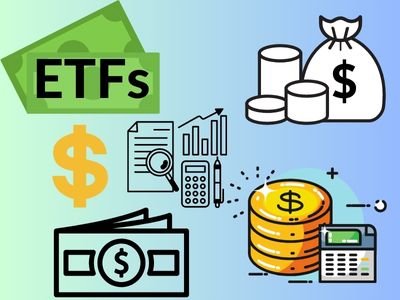Exchange-traded funds (ETFs) have been gaining popularity among investors in recent years. These investment vehicles are similar to mutual funds but are traded on stock exchanges like individual stocks. In this article, we will explore why ETFs are becoming a popular choice for investors.

- Diversification: One of the main advantages of ETFs is their ability to provide investors with exposure to a diversified portfolio of assets. For example, a single ETF can provide exposure to a basket of stocks, bonds, or other asset classes, which can help reduce risk and increase returns over the long term. ETFs also provide investors with access to asset classes and sectors that may be difficult or expensive to invest in otherwise, such as commodities or international stocks.
- Lower Costs: ETFs typically have lower management fees and expense ratios compared to actively managed mutual funds. This is because ETFs are passively managed and seek to replicate the performance of an underlying index, rather than actively selecting individual stocks or bonds. Additionally, ETFs have lower transaction costs compared to individual stock trading, which can further reduce costs for investors.
- Flexibility: ETFs are traded on stock exchanges, which means they can be bought and sold like individual stocks throughout the trading day. This provides investors with flexibility and control over their investments, allowing them to enter and exit positions quickly and easily. ETFs can also be used for various investment strategies, such as hedging, short selling, and sector rotation.
- Transparency: ETFs are required to disclose their holdings on a daily basis, providing investors with transparency and visibility into the underlying assets. This can help investors make informed investment decisions and monitor their portfolio’s performance.
- Tax Efficiency: ETFs are generally more tax-efficient than mutual funds. This is because ETFs have lower turnover rates, which means they generate fewer capital gains distributions compared to actively managed mutual funds. Additionally, ETFs can be sold without triggering capital gains taxes, as long as they are sold at a profit.
In conclusion, ETFs are becoming a popular choice for investors due to their diversification, lower costs, flexibility, transparency, and tax efficiency.
However, it’s important to research and understand the underlying assets, fees, and risks associated with any ETF before investing. Additionally, investors should consider their investment goals, risk tolerance, and time horizon when selecting ETFs that align with their investment strategies.
Spread the love





Id like to thank you for the efforts you have put in penning this site. Im hoping to see the same high-grade blog posts by you in the future as well. In fact, your creative writing abilities has inspired me to get my own site now 😉